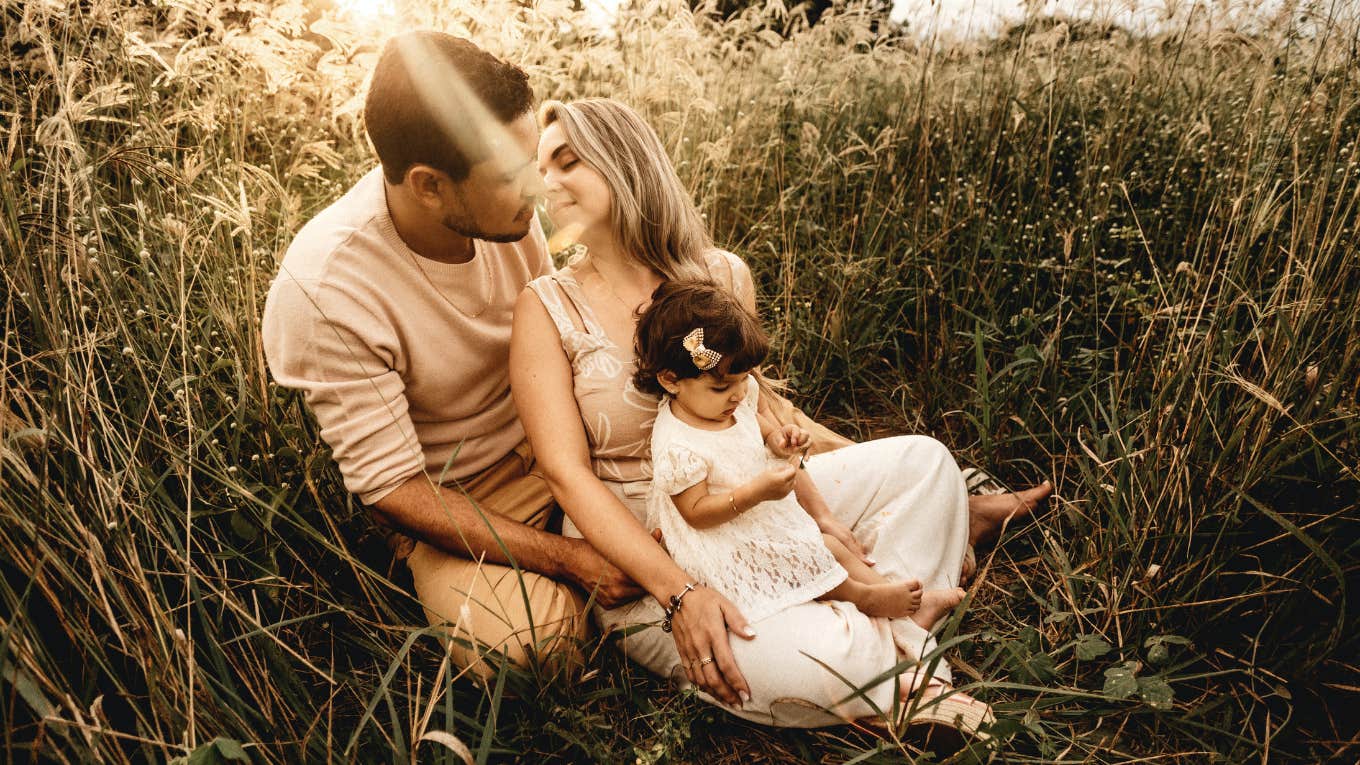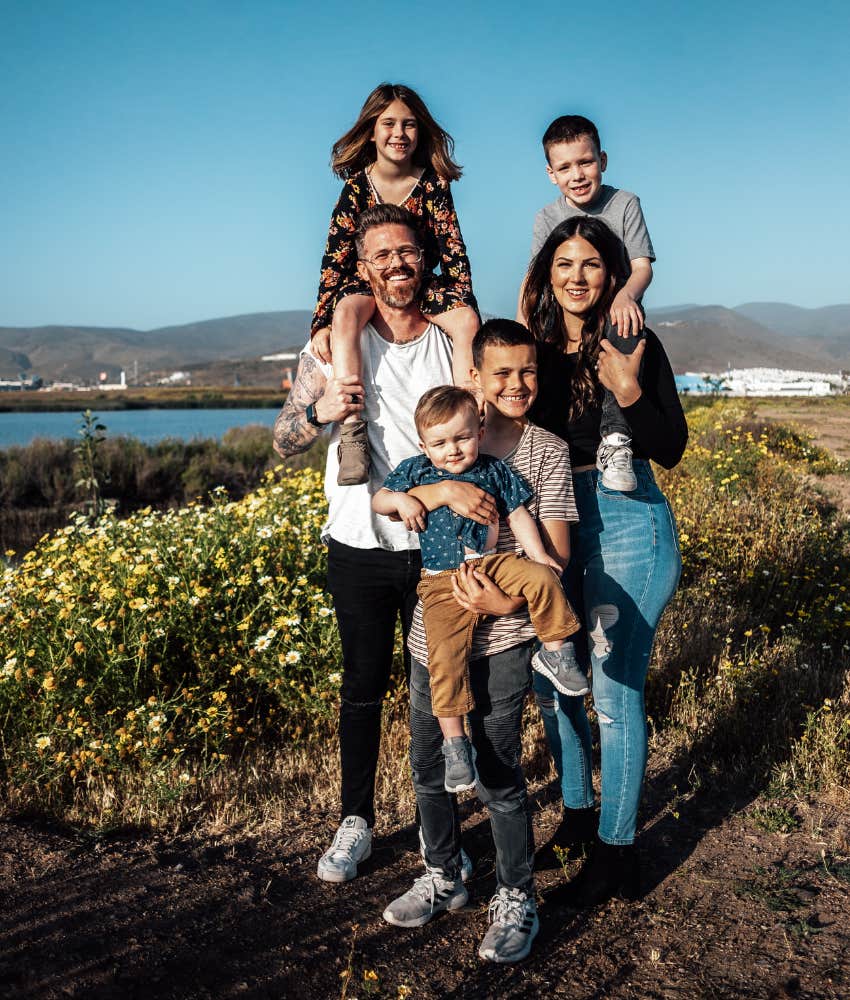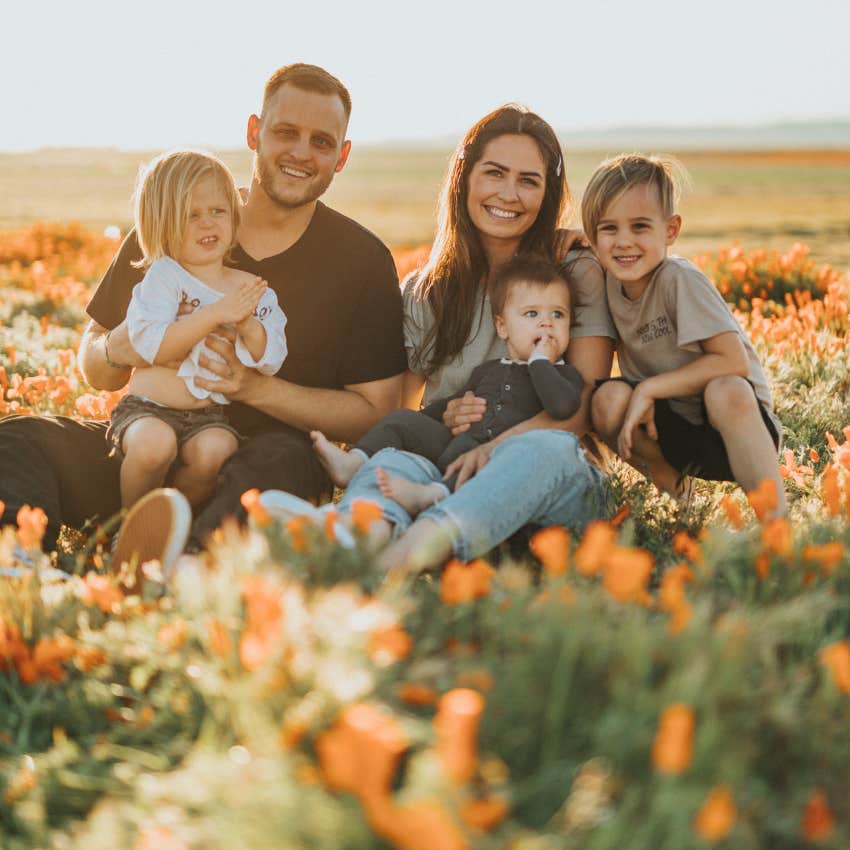Therapist Explains Why 'The Grief Of Watching A Functional Family' Is Triggering For People Who Grew Up In A Specific Family Dynamic
Sometimes, seeing what we don't have brings up complex emotions.
 Jonathon Borba / Unsplash
Jonathon Borba / Unsplash Liz Rhea is a therapist in Atlanta, Georgia, who uses TikTok to offer accessible mental health tips. She gave her followers “a friendly reminder” on how to navigate difficult feelings when surrounded by other people’s families.
The therapist explained why ‘the grief of watching a functional family’ is so triggering for people who grew up with a specific family dynamic.
“If you grew up in a dysfunctional family and now maybe you’re with a partner’s family, a friend’s family, chosen family, who engages in a way that feels ‘normal’ and how a family ‘should’ to you … the grief of watching a functional family is often much more activating than engaging with a dysfunctional family,” she shared. “I see you,” Rhea concluded. “It is so difficult.”
For someone who was raised in a family system that felt toxic, seeing how well-adjusted families operate can bring up a lot of complicated emotions. Even if you appreciate the care and compassion that family shows you, it can still feel disorienting to be around.
The comments section became a place for people to share how seeing functional families compounded a sense of loss for what they didn’t have.
 Photo: Josue Michel / Unsplash
Photo: Josue Michel / Unsplash
“I always called it some weird jealousy, but I think grief suits it better,” said one person. “There’s grief in seeing how things could have been and what I didn’t get to have growing up,” said another.
One person described their experience spending time with their in-laws, explaining how “everyone is trying to help with everything, no one’s getting upset, there’s so much laughter, and I just feel like crying.”
“I never feel like I fit. I never know how to act or what to do,” someone else revealed.
The feeling of missing something we were never offered, especially when it comes to our families, is an experience rooted in grief.
“I believe that we are all grieving, all the time,” Rhea stated in a separate post. “I feel like it can be a particularly important reminder, after the holidays, moving into a new year, I feel like that can provoke a lot of grief … The holidays provoke a lot of grief. The end of the year can provoke a lot of grief.”
“The framework that I operate from is that we are all grieving, all the time,” she reiterated. “We grieve big things, we grieve small things,” such as seeing all the different ways families relate to one another.
She explained why operating from a place of acknowledging grief can be such a powerful tool for people looking to heal. “Using grief as a framework can be a really helpful way to not shame yourself or to minimize the amount of shame that you’re feeling for the emotions that you’re having over things,” she said.
 Photo: Nathan Dumlao / Unsplash
Photo: Nathan Dumlao / Unsplash
Rhea shared a list of the various things we grieve, as humans moving through a world that’s always changing.
“We grieve life transitions. We grieve the death of someone. We grieve the loss of a relationship, whether that’s a permanent severing, through death [or] divorce … but also just friendships moving around, relationships ending, things like that.”
She touched on how we grieve transitions both big and small, like “moving away, leaving jobs, the weather not being what we wanted it to be.”
She also spoke to the importance of giving voice to our grief, as “the framework of grief can allow you to cultivate some compassion and minimize as much as possible the shame that might be coming up for you.”
While it might feel uncomfortable to express that kind of heartache, for many people, doing so validates their shared sense of loss for the families they didn’t have.
Alexandra Blogier is a writer on YourTango's news and entertainment team. She covers mental health, pop culture analysis and all things to do with the entertainment industry.

